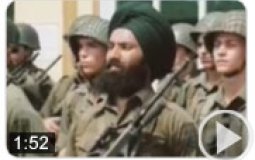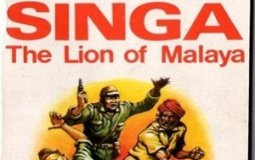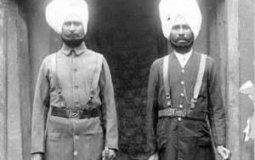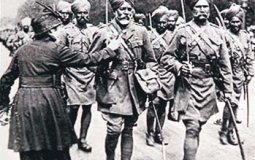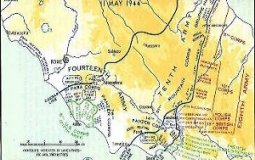“Go to war not for the sake of goods or gold, not for your homeland or for honor, nor to seek the death of your enemies, but to strengthen your character, to strengthen it in power and will, in habits, custom and earnestness. That is why I want to go to war.”
Living with his family in Kuala Lumpur, and under the guise of a number of civilian occupations, Gurchan Singh began his resistance movement.
The Sikh appearance and presence was effective, in the opinion of the British, in intimidating the Chinese secret Societies and deterring criminal activities. The Sikhs were recruited by the British for police services, traffic duties, the riot squad and the mounted section.
The Sikh Soldier since times immemorial has been in the forefront of all wars to fight against the forces of evil. During the Second World War, the Sikhs in Italy played a predominant role in the battles fought, what is collectively known in military history as the Italian Campaign.
The Sikh Soldiers since times immemorial have been in the forefront of all wars to fight against the forces of evil. This privilege should be extended to the Sikh people, who throughout the history of the world have spilled their blood unflinchingly to protect civil liberties.
India made its contribution to the Second World War by providing almost two million volunteers in a couple of years. At the outbreak of the Second World War, in September 1939, the Indian Troops, totaled 2,005,038.
These men were a fine body of men, full of enthusiasm, energy and that never-to-die spirit which is a prerogative of Sikhs, and in respect to their physique, they left nothing to be desired.
